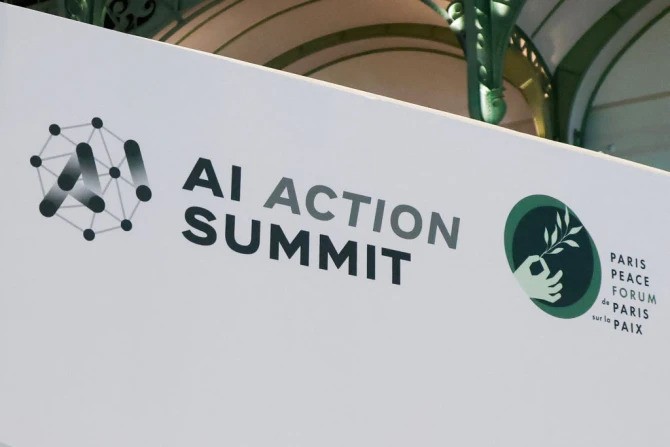The just concluded Action Summit on Artificial Intelligence (AI) that took place between February 10 and 11 in the French capital, Paris was another opportunity for the global community to rally round for a more inclusive and sustainable future for AI and how it will benefit the world.
Participants from over 100 countries, including government leaders, international organisations, representatives of civil society, the private sector, and the academic and research communities gathered for the AI Action Summit.
During this summit, founding members launched a major Public Interest AI Platform and Incubator, to support, amplify, decrease fragmentation between existing public and private initiatives on Public Interest AI and bridge digital divides. The Public interest AI Initiative according to members, will “sustain and support digital public goods and technical assistance and capacity building projects in data, model development, openness and transparency, audit, compute, talent financing and collaboration to support and co-create a trustworthy AI ecosystem advancing the public interest of all, for all and by all.”
According to the French authorities, rapid development of AI technologies represents a major paradigm shift, impacting citizens, and societies in many ways. In line with the Paris Pact for People and the Planet, and the principles that countries must have ownership of their transition strategies, the organisers have identified priorities and launched concrete actions to advance the public interest and to bridge digital divides through accelerating progress towards the Sustainable Development Goals (SDGs).
This Summit highlighted the importance of reinforcing the diversity of the AI ecosystem. It has laid an open, multi-stakeholder and inclusive approach that will enable AI to be human rights based, human-centric, ethical, safe, secure and trustworthy while also stressing the need and urgency to narrow the inequalities and assist developing countries in artificial intelligence capacity-building so they can build AI capacities.
The Summit also affirmed the following main priorities: they include: Promoting AI accessibility to reduce digital divides; Ensuring AI is open, inclusive, transparent, ethical, safe, secure and trustworthy, taking into account international frameworks for all and making innovation in AI thrive by enabling conditions for its development and avoiding market concentration driving industrial recovery and development. Others are:Encouraging AI deployment that positively shapes the future of work and labour markets and delivers opportunities for sustainable growth as well as Making AI sustainable for people and the planet.
Nigerian and other African countries participated in the Paris Action summit on AI and it is instructive that Nigeria will deploy the technology to drive economic development and boost investment in critical sectors.
We acknowledge the fact that AI is transforming the modern world in enormous ways and unleashing massive opportunities in many fields. However, this technology can benefit everyone if it is deployed responsibly with ethical standards and trust at its heart.
There are a number concerns about AI regarding safety, security. For AI to fulfill its purpose, collaborative effort is very essential. Therefore all stakeholders must work to achieve a trusted AI ecosystem.
This is where the Nigerian government must affirm its approach to tackle the risks involved. There are key challenges and risks of AI in the Nigerian economy which include; lack of skilled workforce, inadequate infrastructure, data privacy concerns and potential job displacement. Others include algorithmic bias, limited digital literacy, and lack of robust regulatory framework to manage ethical AI implementation. These challenges have hindered the full potential of AI in driving economic growth while increasing existing inequalities if not adequately tackled.
We are also concerned that the AI-generated fake content could be used to spread misinformation and manipulate public opinion and we are much more apprehensive that AI-powered surveillance systems could be used to violate citizen’s rights without proper oversight. We also fear that the technology, if not well managed, could strengthen the widening socioeconomic inequalities in the country by disproportionately giving certain groups an advantage over others.
The Nigerian authorities must therefore initiate policies and programmes to mitigate the risks inherent in the use of AI. The Nigeria’s National Artificial Intelligence Strategy released in 2024 by the National Centre for Artificial Intelligence and Robotics (NCAIR), is a draft plan to guide the development and the use of AI in the country. This strategy we believe must be guided by the interest of the country at heart, while opening its frontiers to this evolving technology. This has provided the framework for the responsible use of the AI while also mitigating risks associated with the technology.
In specific terms, Nigerians must invest more in education and skill development to build well-trained experts in the field as well as improve internet connectivity while investing more in digital literacy just like the National Information Technology Development Agency (NITDA) is already doing in collaboration with other agencies.
We acknowledge the efforts of the National Data Protection Commission (NDPC) led by National Commissioner, Dr. Vincent Olatunji, to provide the legal framework for data primacy and protection but we suggest more stringent measures against data privacy violations.





